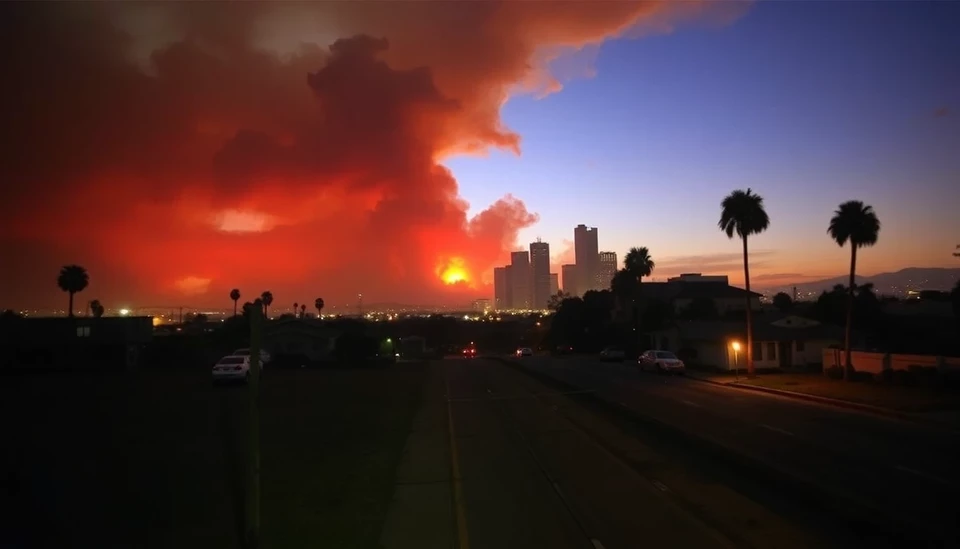
In a startling revelation, new research has established that climate change has dramatically increased the fire hazards in Los Angeles. According to a comprehensive study conducted by climate scientists, the risk factors influencing fire susceptibility in the region have escalated by an alarming 35% due to rising global temperatures and prolonged drought conditions.
The implications of these findings are profound, as they highlight the growing challenges faced by urban and wildland areas, particularly in California. As we move deeper into an era of climate unpredictability, the connection between changing weather patterns and the frequency of wildfires has become increasingly critical. This study serves as a sober reminder of the environmental crises that are becoming more entrenched in our daily lives.
Researchers scrutinized historical weather data alongside local climatic conditions in Los Angeles County to arrive at their conclusion. They identified key factors such as increased temperatures, reduced rainfall, and extended periods of dryness as primary contributors to this heightened fire risk. The findings suggest that ongoing climate change is not just an abstract future threat but a present reality affecting ecosystems and communities now.
As Los Angeles continues to confront its burgeoning fire risks, the study underscores the necessity for enhanced fire management strategies and urban planning initiatives. There is an urgent need for local and state policymakers to collaborate on developing robust frameworks that would improve resilience against potential wildfires. These measures are critical, especially considering that previous fire seasons have devastated large swathes of land, causing irreparable damage to habitats and property.
This research adds to a growing body of evidence that emphasizes the direct link between climate change and the increasing frequency and intensity of wildfires. Scientists have warned that if global warming continues unabated, the situation will only worsen, exacerbating a cycle of destruction that compromises both the natural environment and human livelihood.
The study has sparked conversations among environmental activists, policymakers, and community members, instigating discussions about sustainable practices and the urgent need for environmental stewardship. There is a collective recognition that immediate action is crucial to mitigate the dangers posed by such a volatile landscape.
In conclusion, the grim findings of this research serve as a clarion call, urging all stakeholders to prioritize climate resilience in their strategic planning. As Los Angeles gears up for future fire seasons, the importance of proactive measures has never been clearer, and the need to develop sustainable solutions to combat climate change has become more urgent than ever.
#ClimateChange #WildfireRisk #LosAngeles #Sustainability #EnvironmentalImpact
Author: Megan Clarke




